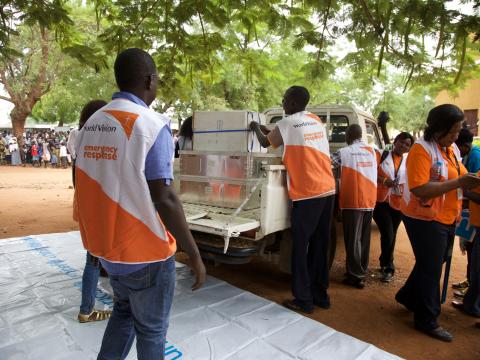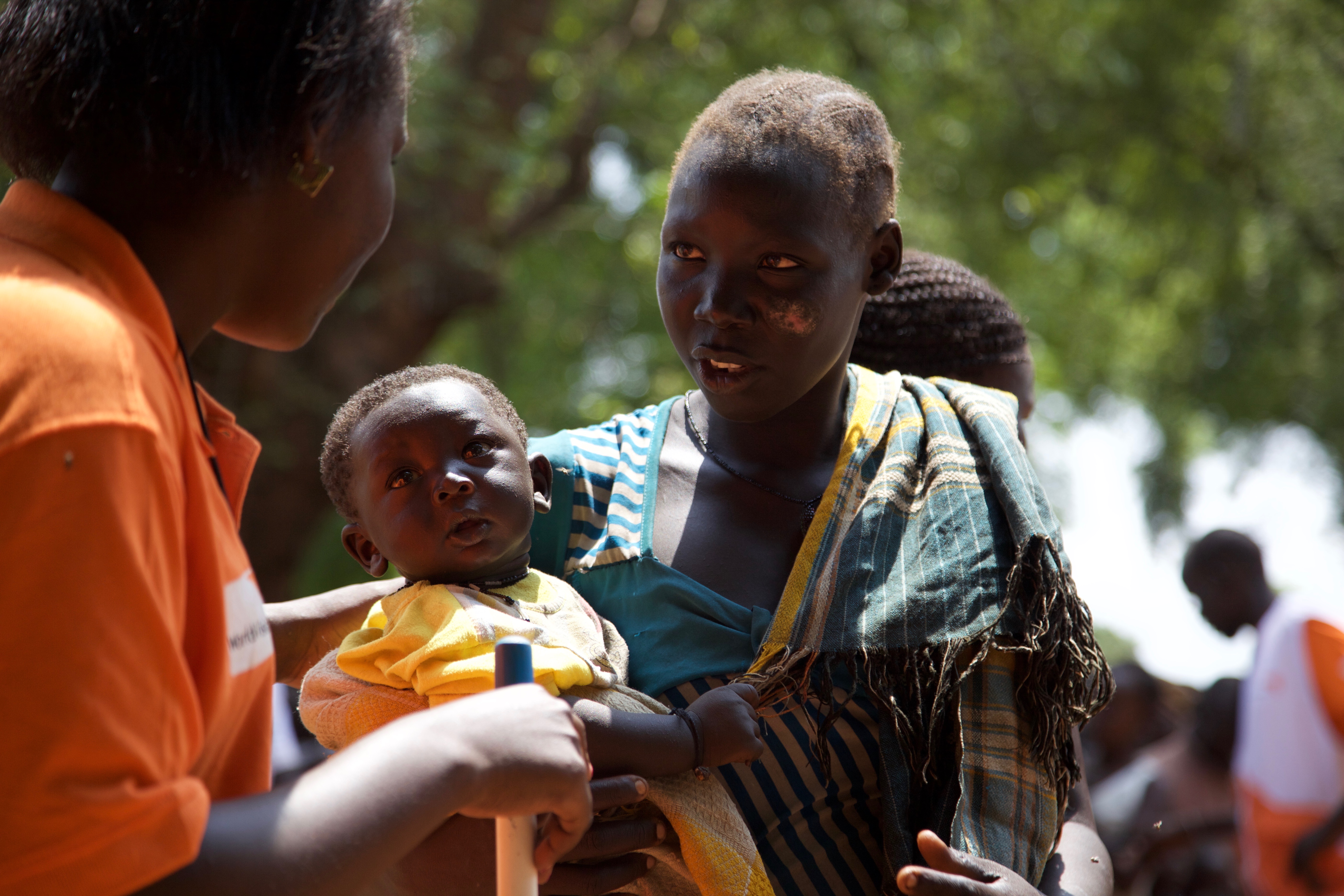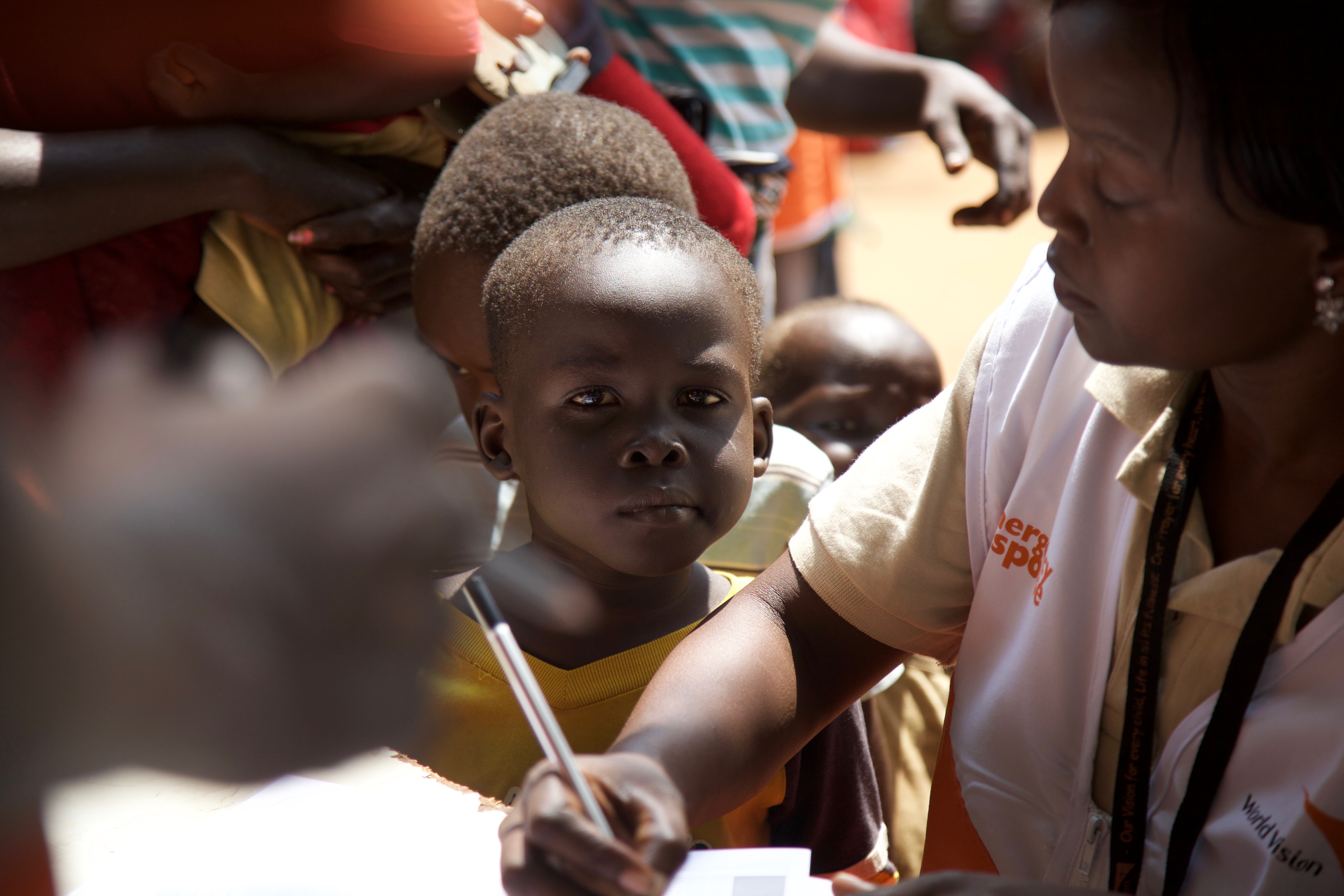World Vision steps up humanitarian response in Juba, South Sudan

15th July
World Vision has stepped up its operations in and around Juba in response to effects of the fighting that broke out on 7th July. Food distribution, which is World Vision’s main focus of work in the capital that had been drastically affected, has resumed.
Despite the acute needs felt in Juba due to the recent violence, World Vision urges all actors to recognize that the recent needs in Juba are part of a much bigger humanitarian crisis. More than 4.8 million individuals were severely food insecure before the recent crisis, and most experts expect the situation to get worse if sufficient interventions are not carried out.
In short, the recent fighting in Juba made an already unprecedented humanitarian emergency even worse, putting an incredible strain on the humanitarian system that millions of South Sudanese across the country depend on to survive.
“Children are suffering extreme deprivation, including malnourishment, displacement, emotional distress and poor health, and access to education,” said Perry Mansfield the National Director of World Vision South Sudan.
World Vision's development and resilience programmes in South Sudan are linked to emergency interventions across the country and are on alert. This includes food security, livelihoods, water and sanitation, health, and peacebuilding interventions.
World Vision is still confident that if peace holds and adequate support is provided to facilitate relief and development needs of South Sudan, the children will achieve future defined by peace, protection and opportunities for prosperity.
World Vision has been working in South Sudan since 1989 and was one of the few aid agencies that provided emergency assistance during war to the displaced populations in what was then the Southern Sudan region of Sudan. After the country became independent in 2011, World Vision began recovery and development activities.

